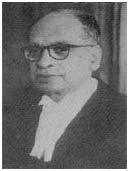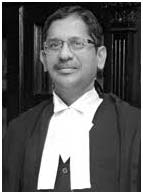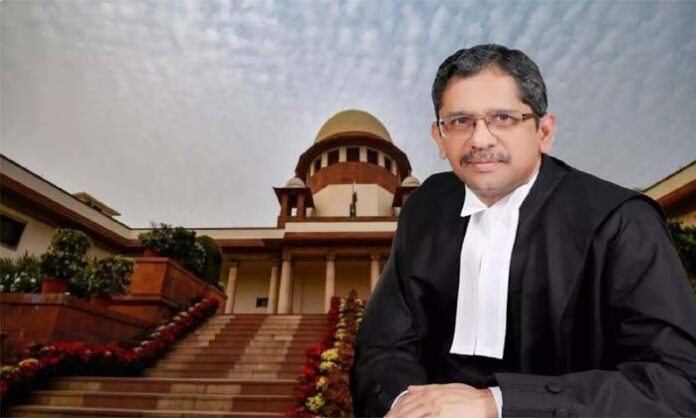- CMs under duty to facilitate speedy trial of accused politicians!
- CJI Sharad A Bobde to demit office on 23 April 2021
- Justice Ramana would be second Telugu to become CJI after Justice Koka Subba Rao
Now it will be under direct supervision of the new Chief Justice of India to see that the leaders with criminal accusations holding Constitutional offices are tried fast leading to either their conviction or acquittal.
The decks are cleared for Justice N Venkata Ramana to become second Telugu Chief Justice of India after the present Chief Justice of India has cleared the allegations of Andhra Pradesh Chief Minister against him. Without giving details of the inquiry, the apex court has published a statement, which disclosed that the complaint was dismissed “on due consideration” after being dealt with under the in-house procedure. The SC said: it be noted that all matters dealt with under the in-house procedure being strictly confidential in nature, are not liable to be made public.

Simultaneously the outgoing Chief Justice of India on 24th March 2021, recommended next senior most judge Justice N V Ramana to succeed him as next Chief Justice as Justice Bobde is demitting office on 24th April.
Also Read : Justice Ramana to be CJI
For the first time in Indian judicial history a Chief Minister has levelled very serious allegations against a senior judge who is lined up to become the next Chief Justice, kicking off nationwide debate and all sorts of comments on social media. It caused confusion all over.
Besides writing a long letter with detailed attack, the Chief Minister also made his Principal Secretary Ajey Kallam to address a press conference to give details of the complaint. Jaganmohan Reddy alleged that the state judiciary was biased against him and blamed Justice N V Ramana for that.
It may be noted that Justice N V Ramana was leading a bench that has taken up a very important matter about criminally accused political leaders in Constitutional offices and directed all the High Courts in India to supervise the speedy trial of those charge sheets to relieve the governments from the control of criminally charged leaders.
Also Read : MLC voting trends ring warning bells to TRS
Justice Ramana Bench was in fact doing what almost all people in India wanted – i.e., getting rid of accused ministers. Every influential and popular leader is trying to scuttle the process began by Justice Ramana bench.
Two southern states Andhra Pradesh and Karnataka are under the rule of criminally charged Chief Ministers and unfortunately their leaders in opposition are also facing criminal cases. The apex court bench is felt that the rule of law is under a serious threat with people’s representatives are busy in attending criminal courts at the cost of people’s governance.
Unfortunately, the major obstacle for Justice Ramana Bench’s order of speedy trial is the High Courts only. As they have granted numerous stays on the investigations. It is said that the opposition leader in Andhra Pradesh Chandrababu Naidu has got around 21 stays on investigations proposed against him, including the latest FIR registered against him for alleged wrongful alienation of lands allocated to SC, ST and weaker sections.
The bench of Justices NV Ramana, Surya Kant and Hrishikesh Roy in September 2020 directed the chief justices of all High Courts to decide within two months all cases where a stay had been granted in trials against sitting and former legislators. The Bench gave a year’s deadline to try and complete all criminal cases against them. The Supreme Court also asked the chief justices to designate a special bench which included themselves to monitor the progress of the trials.
Also Read : Can we retrieve academic freedom from clutches of dependence?
The process of speedy trial has started five years ago in 2017, as per orders of the Supreme Court 12 Speical courts were set up across the country. The Court’s direction came in a PIL filed by BJP leader Ashwini Kumar Upadhyay who had demanded fast-tracking of criminal trials against tainted politicians and a life ban for those convicted in such crimes. Hansari had suggested radical measures based on statistics of criminal cases pending against these politicians as had been received from High Courts.
It is not that all those charged politicians are criminals. Some of them are victims of political vendetta. There is an example. Former Haryana Minister Sampat Singh, who is accused of criminal cases, also welcomed this direction.
He said: “I have been a proponent of probity in public life and speedy trial of cases involving lawmakers. At the same time, I have also been a victim of political vendetta and prolonged trials.”
Also Read : Penal Provisions and Procedural Law invoked in FIR Against Chandrababu
He said: “In 1985, I had prepared a memorandum against Chief Minister Bhajan Lal listing alleged acts of corruption involving him after strenuous and often risky efforts. The memorandum was signed by 100 MPs. Chaudhary Devi Lal and I along with many leaders presented the memorandum to Prime Minister Rajiv Gandhi who referred it to the Jaswant Singh Commission. However, Bhajan Lal returned to power, and on January 9, 1993, a case under the Prevention of Corruption Act was registered against me. Over 50 officers and 2,000 policemen were involved in raids that took place in 26 places. Thankfully, in March 2002, I was acquitted by the special court.”
Indialegallive.com reported the details of Sampath Singh. It wrote: In 2004, the complainant filed a revision petition in the Punjab and Haryana High Court; it was dismissed in 2010. Thus, it took 17 years for the case to be finally decided. “There is need for an effective mechanism to discourage registering criminal cases to settle scores,” he said.
The trial, speedy or ordinary, will require the witness protection because the influential criminal leaders holding power will certainly threaten the witnesses or eliminate them, if not succumbed.
In case of Swaran Singh vs State of Punjab, the Supreme Court observed that “a witness has to visit the court at his own cost. Every time the case is deferred for a different date. Nowadays it has become more or less fashionable to repeatedly adjourn a case. Eventually, the witness is tired and gives up.” The SC further said: “While adjourning a case without any valid cause, a court unwittingly becomes party to miscarriage of justice too. Most witnesses have to wait their turn out. And when their time for deposing or the giving of evidence comes, the lawyers examine and cross examine them as if they themselves are the perpetrators of the crime.”
Also Read : Pre-arrest Notice to Chandrababu
The Law Commission gave many reports emphasising on a witness protection programme. The Malimath Committee report also supported this program. But there was neither a specific program nor a proper response of states and High Courts. The Law Commission’s 198th report on “Witness Identity Protection” and “Witness Protection Programmes” of 2006 was forwarded to states for inputs.
It is not enough if the High Courts respond to Justice Ramana Bench’s directions. Unless the state governments and political executives act promptly and sincerely, the speedy trial of the ‘prosecution’ of themselves will not be possible. The question is which Chief Minister supports speedy trial of criminal cases against him, and which opposition leader wants vacating stay against the investigation of charges alleged? As number two Judge of SC, Justice N V Ramana initiated the program of speedy trial. Six months are over. Now people look forward for the implementation of the orders of this bench under direct supervision of the Chief Justice of India. Let us hope.

A renowned Telugu Judge, former Chief Justice of Andhra Pradesh Koka Subba Rao (15 July 1902 – 6 May 1976) was the ninth Chief Justice of India between 1966–1967. Born into a Velama family in Rajahmundry of Andhra Pradesh is son of a lawyer and joined in lawyer’s office of his father in law – P Venkata Raman Rao Naidu, who was junior of Andhra Kesari Tanguturu Prakasham. Student of Madras Law College, Subbarao has worked as District Munsif before getting elevated as Judge of Madras High Court. Reputed lawyer P V Rajamannar, who became Advocate General and Chief Justice of Madras High Court is brother in law of Subbarao. On Prakasham’s insistence Subbarao was deputed as Special officer to set up High Court at Guntur in 1954. Subbarao was the first Chancellor of Sri Venkateshwara University in Tirupati in 1954. From Judge of Madras High Court he became Chief Justice of Andhra Pradesh High Court. He was elevated as Supreme Court judge in 1958 and became Chief Justice on 30 June 1966. His landmark judgment is in Golaknath v State of Punjab wherein he held that fundamental rights cannot be amended. He retired on 11 April 1967 to contest as the consensus candidate of opposition parties in fourth Presidential Elections. He lost to Zakir Hussain. He died on 6 May 1976.
Also Read : More powers against and more restrictions on social media
After Koka Subbarao, the ninth Chief Justice of India, Justice N V Ramana will be 48th Chief Justice of India from 24 April 2021 and remain in office till 26 August 2022.

Before joining the apex court, Justice Ramana was the Chief Justice of Delhi High Court and the acting Chief Justice of Andhra Pradesh High Court. He also served as the president of the Andhra Pradesh Judicial Academy.
He was born in an agricultural family in 1957 in Krishna district of Andhra Pradesh and began practice of law in 1983 and dealt with several cases before the High Court of Andhra Pradesh, Central and Andhra Pradesh Administrative Tribunals and the Supreme Court of India in Civil, Criminal, Constitutional, Labour, Service and Election matters. He was also Additional Advocate General of Andhra Pradesh. Justice Ramana joined as a permanent Judge of the Andhra Pradesh High Court in 2000, and was Acting Chief Justice of Andhra Pradesh High Court from March 10, 2013 to May 20, 2013. He was elevated as the Chief Justice of Delhi High Court in September 2013 and later elevated as a Judge, Supreme Court of India on February 2014. He has specialized in Constitutional, Criminal, Service and Inter-State River laws, Justice Ramana is credited for authoring path-breaking judgments in tax, constitution, arbitration, and criminal law.
Also Read : Whether Ranjan Gogoi committed Contempt of Court?
Now it is the duty of Chief Ministers and Chief Justices of High courts to follow the directions of Justice Ramana Bench and supervise speedy trial of cases against Chief Ministers and Ministers.




